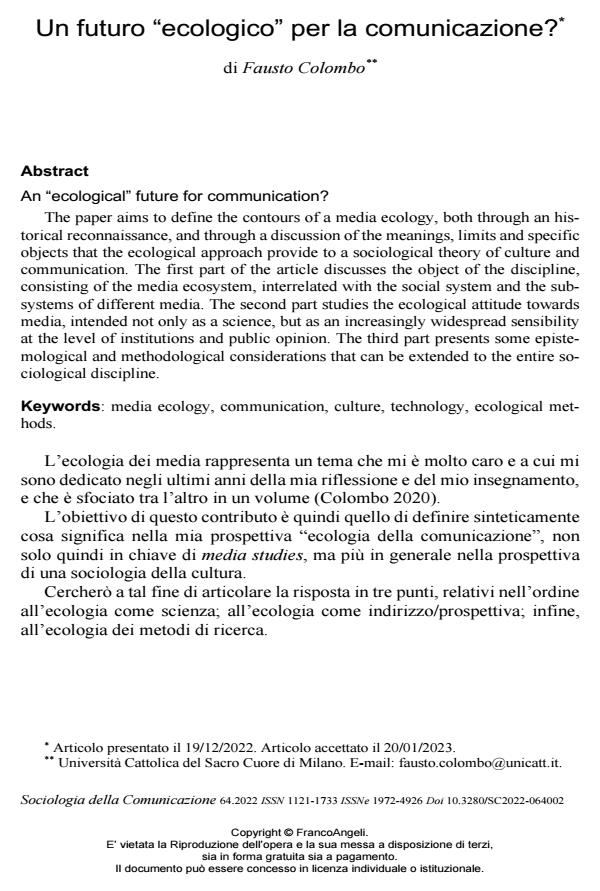An "ecological" future for communication?
Journal title SOCIOLOGIA DELLA COMUNICAZIONE
Author/s Fausto Colombo
Publishing Year 2023 Issue 2022/64
Language Italian Pages 15 P. 28-42 File size 276 KB
DOI 10.3280/SC2022-064002
DOI is like a bar code for intellectual property: to have more infomation
click here
Below, you can see the article first page
If you want to buy this article in PDF format, you can do it, following the instructions to buy download credits

FrancoAngeli is member of Publishers International Linking Association, Inc (PILA), a not-for-profit association which run the CrossRef service enabling links to and from online scholarly content.
The paper aims to define the contours of a media ecology, both through an his-torical reconnaissance, and through a discussion of the meanings, limits and spe-cific objects that the ecological approach provide to a sociological theory of cul-ture and communication. The first part of the article discusses the object of the discipline, consisting of the media ecosystem, interrelated with the social system and the subsystems of different media. The second part studies the ecological atti-tude towards media, intended not only as a science, but as an increasingly wide-spread sensibility at the level of institutions and public opinion. The third part pre-sents some epistemological and methodological considerations that can be ex-tended to the entire sociological discipline.
Keywords: media ecology, communication, culture, technology, ecological methods.
Fausto Colombo, Un futuro "ecologico" per la comunicazione? in "SOCIOLOGIA DELLA COMUNICAZIONE " 64/2022, pp 28-42, DOI: 10.3280/SC2022-064002